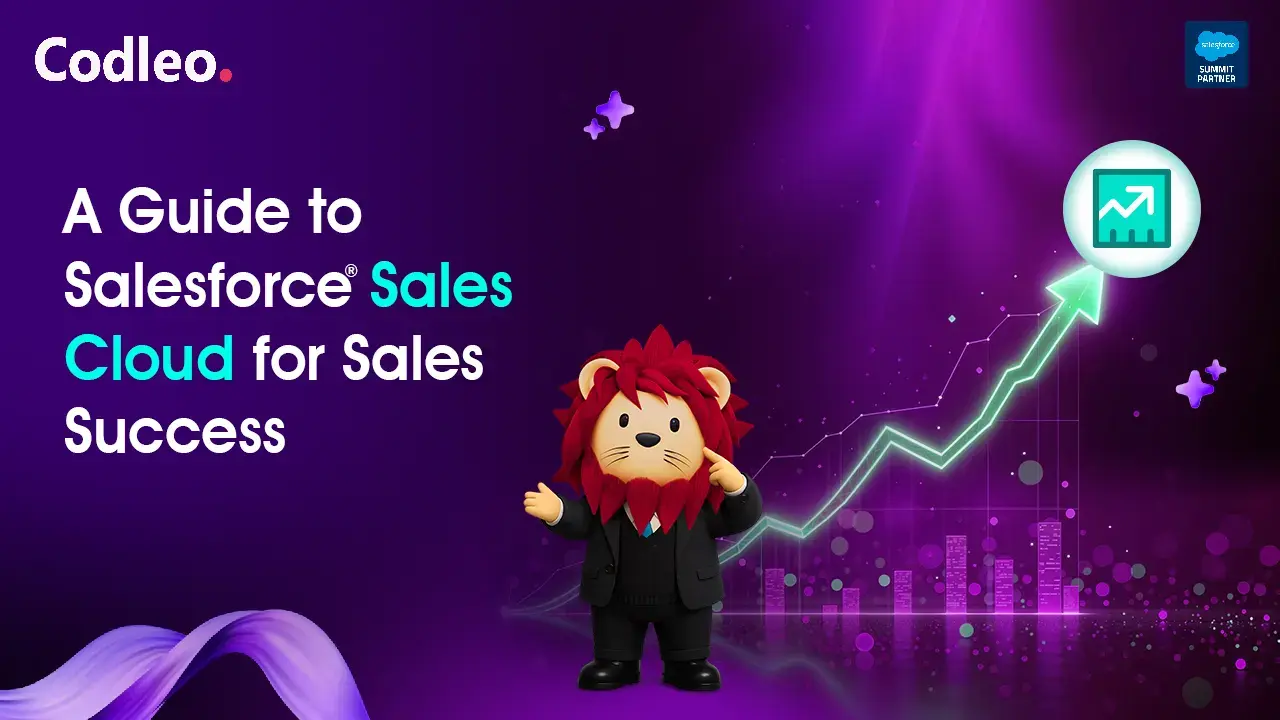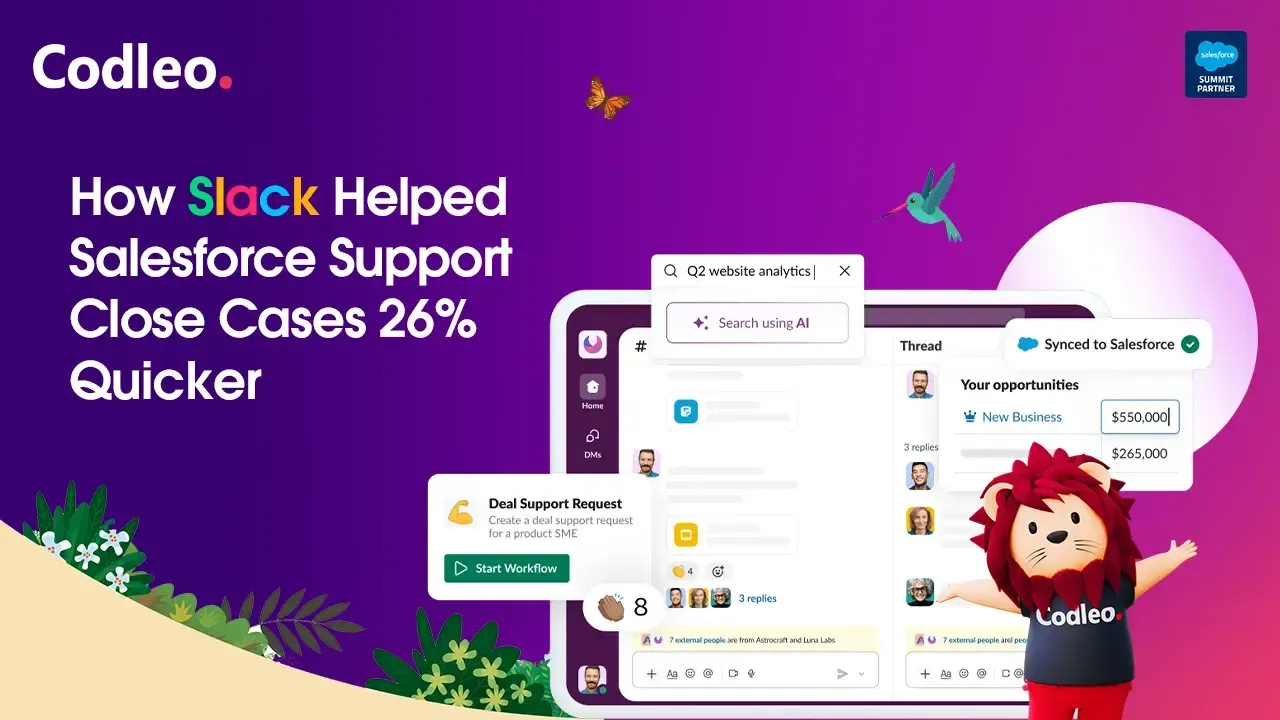Publish date:
In the past, I investigated the challenges within the Salesforce implementation market to determine whether the issue's root was tied to "bad" consultancy partners. I discovered that the problem didn’t necessarily lie with the consultancies but with the number of implementation projects executed.
As we move forward in 2025 and beyond, consultancies, end users, and customers alike must understand that solutions are readily available. The future of Salesforce implementations is already showing signs of promise. With this in mind, this article shifts focus to a critical question: How does Salesforce actively support its consulting partners?
What’s the Issue?
Persistent challenges involving many projects have long plagued Salesforce implementations that were left incomplete or unsuccessful. These situations often leave clients and future consultants grappling with the aftermath.
Discussions with consultants, end users, and business leaders have revealed that these difficulties have expanded and substantially impacted functions.
One common observation is the amount of corrective work required to remedy problems caused by poorly executed implementations.
The main highlighted concerns include prioritizing profits over delivering quality, neglecting established best practices, and failing to provide proper documentation.
Why Is This Happening?
The reasons behind these challenges are not straightforward, and assigning blame to a single factor would oversimplify a more complex issue.
Two primary concerns have emerged: the hiring approach based on certifications and a perceived gap in support from Salesforce.
The certification-focused hiring trend frequently drives consultancies to prefer formal credentials above actual expertise. This is done to calm stakeholders by displaying qualifications, but it might result in teams missing hands-on experience despite suitable certifications.
Feedback on support has been mixed. While some consider the available resources adequate, others believe substantial inadequacies exist. Concerns include a lack of support beyond the beginning of training tools, and some consultants feel undervalued as partners.
These concerns identify areas for development. Fortunately, Salesforce has acknowledged the issues and is trying to resolve them.
Market Overview
We are aware of the issues and their implications. We've already discussed some potential options. But, before delving more deeply, it's critical to grasp the current state of Salesforce's partner ecosystem.
Salesforce has consistently highlighted the importance of customer implementation and success in its operations.
With over 75,000 employees globally, Salesforce has over 25% of its workforce dedicated to customer implementations and success.
Additionally, the Salesforce partner network includes more than 250,000 certified consultants, and when considering all implementations within the ecosystem, these partners are involved in approximately 70% of Salesforce's overall customer base.
Key Support Resources
Several resources are available for partners seeking additional assistance to enhance their experience.
Beyond the basic Trailhead modules, the Partner Camp is a fantastic self-learning resource. This platform enables partners to expand their product and industry expertise, plan initiatives, and explore role-specific learning courses tailored to their needs.
Additionally, partners can access various virtual and in-person workshops, webinars, and events, such as the Partner Kickoff (PKO), which will launch in early 2025 at no extra charge.
To fully understand the benefits of being part of the Partner Program, partners can refer to the Consulting Track guide. This resource outlines various advantages, including access to demo organizations, participating in a Partner Advisory Board, and working closely with a Salesforce point of contact for consulting relationships.
Salesforce leadership mentioned the difficulty of providing constant support to all partners. This is why prioritizing those with the most significant impact is essential.
Despite this, specialized support remains available through Salesforce’s Professional Services, and some consultants shared that their firms have benefited from dedicated sessions with Salesforce specialists focused on partner education.
Looking ahead, Salesforce is also developing the Agentforce platform to enhance partner support further.
Agentforce Support
Salesforce's dedication to Agentforce extends beyond guaranteeing client pleasure and includes partner support.
One of the platform's unique applications is to aid consultants.
Salesforce promotes Agentforce to assist consultants in improving their work with clients, providing smoother implementations, and reducing the chance of difficulties or bad outcomes.
Salesforce has trained over 80,000 consultants on Agentforce, focusing on providing them with the necessary skills. As part of this project, 14,000 consultants have acquired the more sophisticated AI Specialist Certification, while 78,000 have obtained the AI Associate Certification.
But the support doesn’t end there. Over 700 global tech partners have benefited from three in-person workshops, a two-part webinar series, and 18 hands-on workshops.
To further assist partners and customers, the Salesforce Partner Team is actively developing agent actions and templates for use within Agentforce. In addition to Trailhead, the Agentforce Partner Guidebook, an updated version of The Partner Readiness Handbook, provides clear guidance for partners on launching and navigating Agentforce.
What Should Partners Do Now?
While Salesforce offers many support resources, some ongoing challenges remain despite initiatives like Agentforce.
Agentforce is a central part of Salesforce’s future partner support strategy, which is promising but not yet fully accessible to everyone. Support options may appear more limited for smaller partners with limited budgets or those without immediate plans to use Agentforce.
Although the various workshops, webinars, and self-learning options are beneficial, they will suffice when the support direction becomes more concentrated. However, the materials provided directly by Salesforce are valuable and should not be neglected.
It is also crucial to realize that Salesforce is not the only one responsible for resolving these issues. While Salesforce may help when projects fail, making proactive efforts is integral to the solution.
Sometimes, implementation issues are rapidly identified, and the team works hard to resolve them. However, recommended practices are frequently ignored, which is one of the most prevalent complaints from consultancies entrusted with fixing faulty implementations. It underscores the necessity for partners to assume greater accountability in consistently adhering to best practices, which is essential for creating a substantial impact in the ecosystem.
Final Thoughts
The Salesforce partner implementation issue is immensely complex and cannot be resolved quickly or easily; too many moving elements, impediments, and deeply ingrained behaviors and processes hinder this.
Salesforce's support for its partners is and will continue to be essential to getting closer to a solution. They have this in mind with their focused Agentforce initiatives. However, for partners that require immediate assistance but do not have financial access to Agentforce, is the availability of the remaining help sufficient?
The germ of this discussion has now been firmly planted, and whatever the next steps are, I'm confident that Salesforce will be ready to help.
















